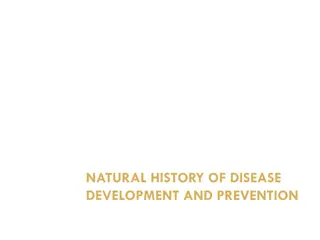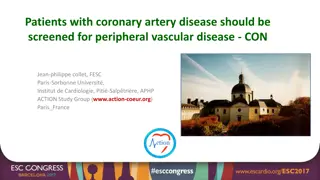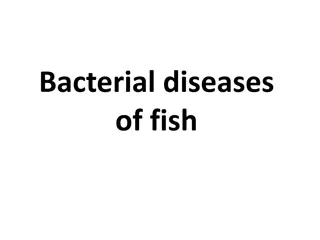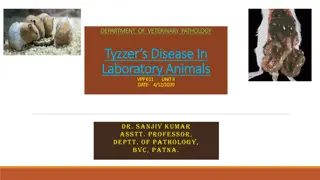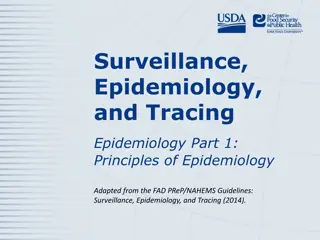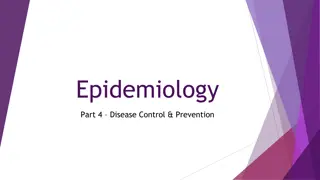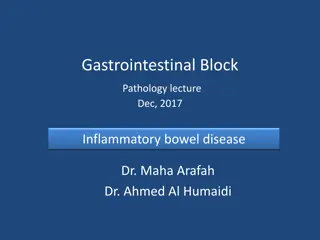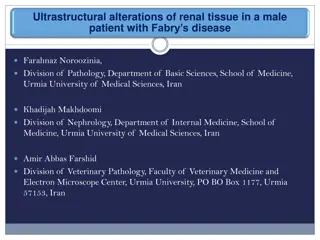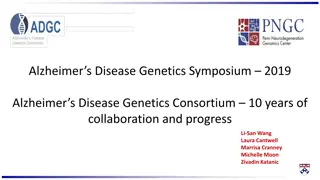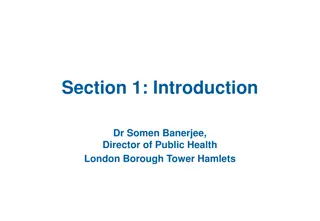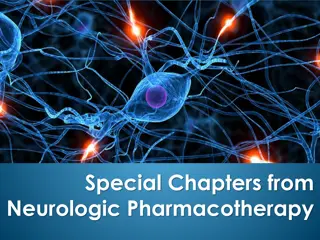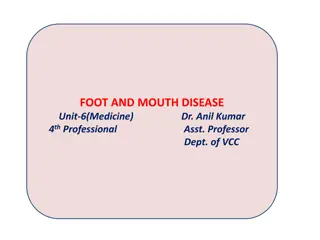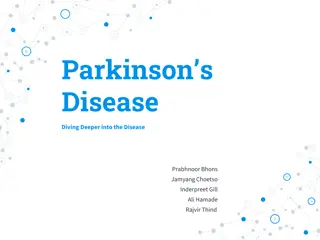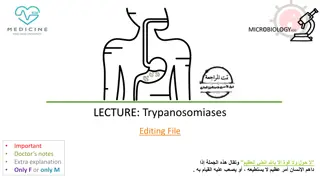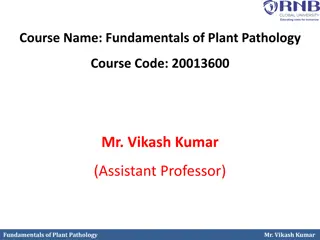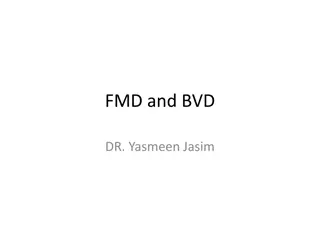Understanding Alzheimer's Disease: A Comprehensive Overview
Alzheimer's Disease is a progressive condition that affects memory and cognitive functions, causing immense challenges for patients and caregivers. This article delves into the implications, symptoms, and societal impact of Alzheimer's, emphasizing the importance of awareness, support, and compassionate care for individuals dealing with this debilitating disease.
Download Presentation

Please find below an Image/Link to download the presentation.
The content on the website is provided AS IS for your information and personal use only. It may not be sold, licensed, or shared on other websites without obtaining consent from the author. Download presentation by click this link. If you encounter any issues during the download, it is possible that the publisher has removed the file from their server.
E N D
Presentation Transcript
Alzheimers Disease: Awareness, Understanding, Support and Care
Alzheimer's Request Do not ask me to remember, don't try to make me understand. Let me rest and know you're with me, kiss my cheek and hold my hand. I'm confused beyond your concept, I'm sad and sick and lost. All I know is that I need you to be with me at all cost. Do not lose your patience with me, do not scold or curse or cry. I can't help the way I'm acting, I can't be different though I try. Just remember that I need you, that the best of me is gone. Please don't fail to stand beside me, love me 'till my life is gone.
Alzheimers Disease - What is it? Alzheimer s Disease Also called senile dementia - the most common cause of dementia among older adults A progressive disease that destroys memory and other important mental functions, such as thought and speech Causes 50 - 70% of all dementia More than 5.4 million Americans are living with Alzheimer s Disease The 6th leading cause of death in the U.S. - -
Dementia vs Alzheimers Disease Dementia An umbrella term for a set of symptoms including impaired thinking and memory Associated with the cognitive decline of aging Some forms of dementia, such as drug interaction or a vitamin deficiency, can be temporary or reversible Alzheimer s Disease Degenerative and incurable at this time, not reversible
Alzheimers is one of the Largest Social, Medical, and Economic Crises in our Nation s History More than 5 million Americans live with Alzheimer s, a disease that robs memories before taking lives Begins to develop in the brain 20-30 years before diagnosis 2/3 of those diagnosed are women and no one knows why 2/3 of Alzheimer s caregivers are women, many of whom will have to take time off or resign from their jobs --
Alzheimers is one of the Largest Social, Medical, and Economic Crises - Part 2 A woman in her 60 s - twice as likely to develop Alzheimer s over the course of her lifetime than breast cancer After 60 a woman has a 1 in 6 chance of developing Alzheimer s vs nearly 1 in 11 chance in a man By 2050, 16 million in the US and 135 million worldwide will have fallen victim to this disease Nearly half of Americans aren t concerned about getting Alzheimer s, because it doesn t run in their families Research proves that genes are not your destiny
Know the Facts Alzheimers Disease Not a natural part of aging 100% fatal - There is no treatment or cure Progresses in stages from: Early Signs and Symptoms, to Mild Stage, to Moderate stage, and ending with Final Stage - which is severe and where the individual cannot communicate and is completely dependent on others for their care Of the top 10 causes of death in America, the only disease without any effective treatment or cure If Alzheimer s runs in your family that does not necessarily mean you will get it Conversely, if it does not run in your family, you are still at risk Healthy habits, such as diet, exercise and lifestyle changes, can prevent or slow the symptoms
Know the Economics Nation s most expensive disease Cost in US - $226 billion in medical treatment, caregiving costs, and lost wages of family members taking care of loved ones Currently on track to bankrupt Medicaid Federal funding for Alzheimer s research is less than $1 billion a year, compared to $5 billion for cancer and $3 billion for HIV/AIDS More funding for research is needed to find treatments and a cure for this disease Expected cost of Alzheimer s is projected to reach $1.1 trillion by 2050 Costs exceed other terminal illnesses, such as cancer and heart disease Cost of care for a person with dementia over the last five years of their life is about $288,000
Alzheimers Treatment No current cure Certain cognitive enhancing medications can improve symptoms Current Alzheimer's treatments cannot stop the disease from progressing Treatments can temporarily slow the worsening of dementia symptoms and improve quality of life Healthy habits can prevent or slow the symptoms A Mediterranean diet, heavy in omega-3 fats, such as in salmon, trout, mackerel, seaweed and sardines, is a health way to treat and possibly prevent the disease and its progression
Alzheimers Prevention According to the Weill Cornell Medicine s Alzheimer s Prevention Clinic, focusing on the emerging science of dementia risk assessment and prevention strategies, states that the goal is to assess threats and identify fixable issues known to affect brain health Opportunity lies in modifying risk factors: what you eat, how you sleep, blood pressure, overall fitness, and even your waistline (abdominal fat raises your risk threefold)
Alzheimers Prevention (continued) The more educated you are, the more information your brain stores and the better it accesses what you ve learned More educational experiences and new mentally stimulating activities add more connections and pathways in the brain, developing a cognitive brain reserve If some pathways grow weak, the brain has extra paths to follow
Programs The Women s Alzheimer s Movement Founded by Maria Shriver Committed to finding out why Alzheimer s discriminates against women Answering the question of why women are disproportionately affected by Alzheimer s; may lead to a cure for all www.thewomensalzheimersmovement.org
Model Program - Annunciation Senior Center Mission - to create an environment stimulating the spiritual, social and interpersonal interaction of seniors in a loving, safe and comfortable environment through Orthodox based fellowship Located in the Annunciation Orthodox Center, Baltimore, MD, the Senior Center team organizes and conducts a wonderful array of activities on a daily basis Liturgical services, sacraments and religious events weekly Contact Information Phone: (410) 752-3525 25 West Preston Street, Baltimore, MD 21201 Email: orthodoxseniorcenter@gmail.com Facebook Page: facebook.com/AnnunciationSeniorCenter
Annunciation Senior Center Daily Experience: Activities designed to stimulate mind and body, promoting wellness and maintaining a happy and healthy life Modest levels of physical activity intended to keep our seniors active Healthy and balanced home cooked meals Current events, dialogue in Greek and English Word and board games Guest speakers and performers Field trips include museums, restaurants, festivals and other interesting events Safe and reliable transportation
Caregivers Over 15.9 million family members and friends are providing over 18 billion hours of unpaid care to their loved ones with Alzheimer s and other dementias Significant emotional, physical, and financial cost to everyone involved
Caregiving Most Americans don t know what the disease entails, who it impacts, or how to prepare for long-term caregiving. Sixty-six percent of Americans want a family member to be their primary caregiver More than half haven t even talked to their families about it, having no idea what it will cost or involve Only 1 in 4 seniors have had the conversation with their children Only 1 in 3 millennials have talked with their parents about the issue
Information that Family Members Need to Know Know the Person s Legal and Financial Matters To whom do they owe money or who may owe money to them Computer passwords Bank accounts, passwords, and safety deposit box info Credit cards and PIN numbers Stocks, bonds, investment or annuity accounts Real estate Insurance policies Legal papers including: Power of Attorney, Health Care Power of Attorney, Current Will Names and contact information of their Attorney, Accountant, Physicians, Companies or help they use
Five Wishes MY WISH FOR: The Person I Want to Make Care Decisions for Me When I Can t The Kind of Medical Treatment I Want or Don t Want How Comfortable I Want to Be How I Want People to Treat Me What I Want My Loved Ones to Know Provided by the Greek Orthodox Archdiocese of America Stewardship Ministries Prepared by the Greek Orthodox Archdiocese of America with the support and cooperation of Aging With Dignity, the nonprofit organization that created the Five Wishes living will
Being a Caregiver Often a stressful and demanding ordeal Have human needs and emotions Must give themselves permission to be human Must care for themselves as well as their loved one
Caregivers Have the Right to: Be angry: Turn this energy into positive action. Clean a closet, take a walk, or talk with someone. Be frustrated: Stop what you are doing, take a deep breath, and begin a different activity. Take time out: Sit in a favorite chair in a quiet room, take a trip to the store, or spend a few hours out with friends. Ask for help: Explore family, friends, and local agencies for resource services. Many doctors' offices and clergy provide referrals. Recognize your limits: You are a valuable person. Take care of yourself, too! Make mistakes: No one is perfect, and mistakes help you learn. Grieve: It is normal to be sad over the loss of the way things used to be. Laugh and love: Now more than ever, it's important to have meaningful connections. Hope: Tomorrow, the day may go smoother, a friend may call, and new treatments may be found.
Resources Alzheimers Association The world's leading voluntary health organization in Alzheimer's care, support and research Chapters across the nation, providing services within each community Professionally staffed 24/7 Helpline (1.800.272.3900) which offers information and advice to callers in more than 170 languages
Hands on Programs or Projects Philoptochos chapters can go on line and find the nearest Alzheimer's Association chapter and volunteer to help Annual walkathons to raise money and awareness June - Alzheimer's & Brain Awareness Month Provide Handouts, Speakers, and Purple Ribbons Volunteer at a local Alzheimer's Association Chapter for special events, helpline support, office help, and public education and awareness programs Helping organizations, such the Alzheimer s Association and the Bright Focus Foundation, is critical for funding Alzheimer s research in the understanding, treatment, and cure for this disease
Alzheimers Communication Never argue, instead agree Never reason, instead divert Never shame, instead distract Never lecture, instead reassure Never say "remember", instead reminisce Never say "I told you", instead repeat/regroup Never say "You can't", instead do what they can Never command/demand, instead ask/model


